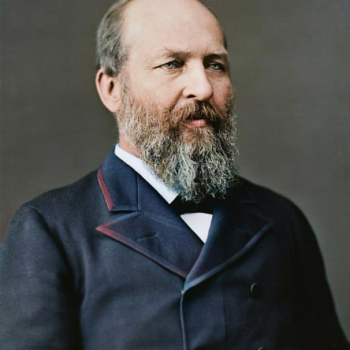Amid the tumult of the last weeks and months, I’ve leaned often on my political science colleagues at Bethel, who last week dedicated an episode of their podcast, Election Shock Therapy, to talking through what the attempted insurrection at the U.S. Capitol revealed about some larger problems facing American democracy. In particular, I appreciated the perspective of our resident expert in comparative politics, Andy Bramsen (PhD, Notre Dame), who was kind enough to answer the follow-up questions below.
Andy, let’s start with January 6th, with Trump supporters storming the Capitol to prevent certification of Joe Biden as the next U.S. president… As a specialist in comparative politics, to what might we best compare such an event?
The 1992 autogolpe (self coup) by President Alberto Fujimori of Peru comes to mind as a similar event, as Fujimori suspended the congress and normal constitutional government and had significant support from the population in doing so. The 1958 pressure on the government in France that brought down the 4th Republic and brought Charles de Gaulle to power to create the new 5th Republic also comes to mind as a similar anti-regime disruption of democracy, but it was different from this event in being driven by people outside of power and involving military support.
In the podcast that you and our colleagues record, you mentioned that one of the larger problems that contributed to the January 6th insurrection was that of “disloyal opposition.” Can you explain what you meant by that — and perhaps also suggest how the Republican Party might instead function as a “loyal opposition” during the Biden presidency?
A loyal opposition refers to political leaders who are currently outside of governing power, yet remain loyal to the democratic regime. In other words, even though they disagree with the particular leaders and policies that currently control government, they continue to respect the rules by which power is being allocated within the democracy and oppose the current government within that system instead of trying to overthrow the system itself. (For a discussion of loyal and disloyal oppositions, see Juan Linz’s 1978 classic The Breakdown of Democratic Regimes: Crisis, Breakdown and Reequilibration.) We have a long tradition of having a loyal opposition in the United States, exemplified by our regular (and usually non-controversial) transfers of power from one party to another. The transition is bumpier this year with all of President Trump’s unsubstantiated charges of electoral fraud, but it appears that in the end it will look relatively normal on Inauguration Day (with the notable exception of Trump becoming the first president since 1869 to skip his successor’s inauguration).

Going forward, if we see Republicans opposing Biden’s policies and candidates on their merits, making their case for why this policy is ill-advised or constitutionally problematic or why particular nominees are not qualified, that suggests they are faithfully executing their job as a loyal opposition. If they are instead opposing everything and everyone that comes from Biden simply because he is a Democrat and they are Republicans and are encouraging agitation against the system itself (as President Trump did on January 6th), then they are following the increasing tendency of both parties in recent years in fraying the norms of a loyal opposition.
What role has religion played in either amplifying or alleviating problems like those currently facing American democracy?
From a political science perspective on democratic elections, religion is one kind of social cleavage (that is, a division within society that matters for political purposes). Democracy tends to be more stable when different social cleavages are cross-cutting instead of aligned. In recent years, our divisions have increasingly aligned economically, socially and religiously, which means that we are finding it harder to understand those different than ourselves, since we share less and less in common with them (Liliana Mason does a nice job providing a detailed explanation of this problem in her 2018 book Uncivil Agreement: How Politics Became Our Identity).
Broadly speaking, the Christian vote is divided, but a closer look shows a lot of internal alignment along racial identities. The tragedy here is that while our identity as followers of Christ (Philippians 3:7-11) ought to be primary, it is becoming secondary. Instead of Christians in both parties remembering the fellowship we share in Christ, we are highlighting the particular set of Christian values our party is good at and ignoring those promoted by the other, whether that is promoting social justice, traditional marriage, or the cause of the unborn, poor, or socially marginalized.
Thus Christianity has contributed to the divisions within American democracy, even though in theory we would hope that we would provide unity across partisan lines since our identity in Christ ought to be deeper than our political divisions. As Christians, we all need to have a spirit of repentance as we ask why what is true in theory has not been true in our practical political lives.
Under both Republican and Democratic administrations, US foreign policy has sometimes focused on spreading democracy to other parts of the world. But I wonder if there’s an extent to which this country needs to be less an exporter than an importer of democracy right now. Are there any particular democracies whose norms, practices, institutions, etc. we could learn from?
We are at an interesting moment in western democracies, with rising populism and ideological extremism creating challenges for other well-established democracies and with concerns being raised that maybe these tensions are a result of problems with the premise of liberal democracy. So while it is certainly true that we need to be humbler about our ability to share the blessings of freedom with others and more willing to receive counsel on how to extend those blessings to all our citizens, it is less obvious who provides a clear model for us.
Embed from Getty Images
Among our democratic peers with a federal form of government, I would hold up Germany as an example of a country that — despite having rising societal extremism and uncooperative parties of the far left and right occupying significant portions of their national parliament — has so far still managed to forge enough consensus between the major parties to govern effectively. This willingness by elites to compromise for the good of the country has been a hallmark of German democracy since 1949 and is a useful example for American leaders. Yet, the fact that this has not stemmed the extremism in German society, plus the increasing reluctance of the Social Democrats to cooperate in this way, make even this example an uncertain one.
Finally, can you give us some reasons to have confidence in American democracy? Is there anything that’s happened in the last few weeks, months, or years that, despite it all, reassures you about the future of politics and government in the U.S.?
Despite the many problems we are noting with American democracy right now, there are certainly reasons to continue to be hopeful. Here are three.
First, although it was popular to call the storming of the capital a “coup attempt,” serious attempts to overthrow the government usually require military backing and the US military has continued in its long tradition of resolutely staying out of politics. This is an encouraging sign for our democracy.
Second, while I am certainly concerned about how far some Republican leaders went in supporting Trump’s claims of electoral fraud, it is heartening to see that once the legal processes were complete and the Electoral College formally declared Biden as the victor, most prominent Republicans acknowledged Biden’s win. After the events of January 6th, a number of them also acknowledged that we need to tone down the rhetoric about political opponents. All this signals that there is still a deep sense that ultimately the opposition should be loyal to the system more than to their particular political leader.
Finally, while not an absolute guarantee, our deep sense as a population of the value of democratic governance remains. I have many friends on the right who think Trump was robbed and think he should be one being inaugurated on January 20th. I disagree, but am encouraged that they still want to see this happen through the normal democratic system (courts, congressional action, etc.) and not through an armed insurrection or military takeover, which suggests that though our shared democratic values may have frayed somewhat, they have not disappeared.













